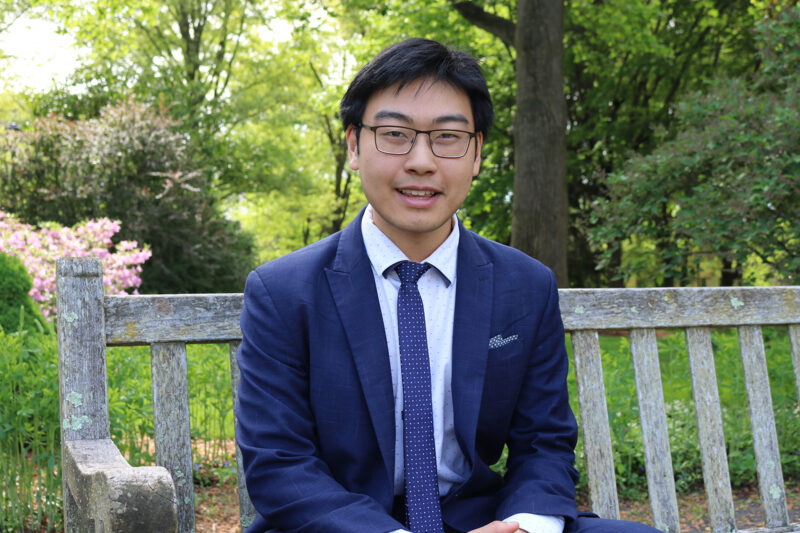Ethan Chiu, a Yale College junior, has been awarded the 2025 Douglas A. Beck Prize by the Yale Jackson School of Global Affairs.
A global affairs and history double major recently admitted into Jackson’s five-year B.A.-B.S./M.P.P. degree program, Chiu is interested in foreign policy and emerging technologies. He is currently working on a thesis paper on labor conditions in the global semiconductor industry. With the growing demand for semiconductors in everything from cell phones to electric cars, manufacturers are increasingly relying on migrant workers for labor.
This summer, Chiu — who is a student in the Brady-Johnson Program in Grand Strategy — will use Grand Strategy funding to travel to the Netherlands, Philippines, and South Korea to conduct research on labor conditions for migrants and the roles that labor unions play in the different countries’ semiconductor industries.
“I’m grateful to win this award,” said Chiu. “I’m appreciative of the faculty and professors at Jackson for believing in me and acting as mentors, and I hope I can contribute as much as they have to national security and public service.”
The Douglas A. Beck Prize is presented to undergraduates who have demonstrated a deep interest in and commitment to global affairs, with a preference for students interested in a career supporting national security. Winners are selected based on high academic achievement, leadership potential, personal integrity, and commitment to public service.
Through the Yale Jackson School’s Schmidt Program on Artificial Intelligence, Emerging Technologies, and National Power, Chiu has already had the opportunity to engage with students from China’s Renmin University on issues related to artificial intelligence and the semiconductor industry, and he was part of a group of Schmidt students who visited tech companies in California’s Bay Area to learn more about advancing AI safety.
“Jackson has been incredible with the resources they provide [for students],” said Chiu, who also received a Les Aspin ’60 International Public Service Fellowship this year to work with legislators in Washington, D.C., on AI, biotechnology, and U.S.-China competition issues.
Two Yale faculty members nominated Chiu for the Beck Prize. Yale Jackson School lecturer James Sundquist said Chiu is “the best national security student of his year” and political science professor Dan Mattingly called him “diligent, persistent in asking questions, and deeply curious.”
Beyond the Yale Jackson School, Chiu has been involved with Yale’s Alexander Hamilton Society chapter, serving as its co-president alongside last year’s Beck Prize winner Pranav Pattatathunaduvil. He has also been involved with student-run groups that include the Yale Foreign Policy Initiative and the Geopolitics of Technology Initiative, helping organize on- and off-campus events and conferences that have integrated Yale students into critical policy conversations. Chiu has also served as intern with the Council on Foreign Relations, the Brookings Institution, and the U.S. Department of Defense.
In winning the Beck Prize, Chiu said he hopes to “pay it forward” by inspiring other Jackson students in the same way they’ve inspired him. He also looks forward to pursuing a career after Yale that uses national security, biotechnology, or AI to “improve the lives of middle-class Americans” by investing in jobs and developing more resilient supply chains.
“If we can grow in these areas domestically,” said Chiu, “it will be incredibly beneficial for the people who need it most.”
